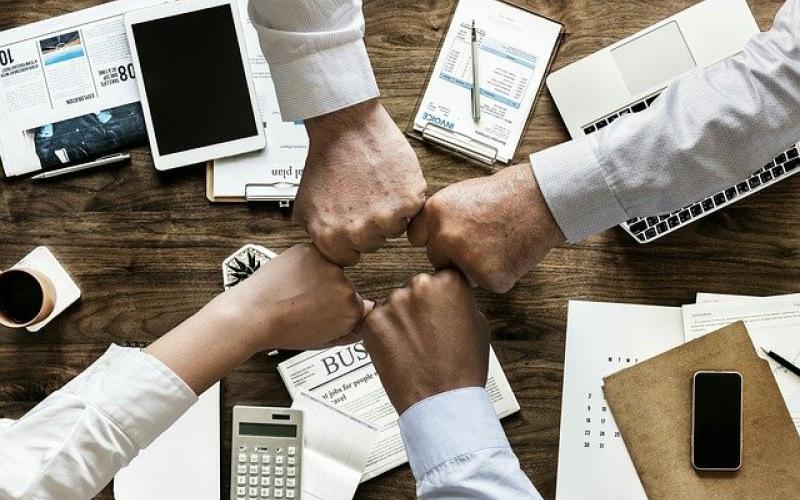
When you think about negotiations, you may think about a lot of things, but have you thought about racism and what it costs? I am not talking simply about bias. I have blogged on Women and Salary Negotiations, Business Valuers, the IRS, and Conflict Resolution – Part 1 and Part 2, Why Emotions Matter in Negotiations, and Conflict and Dispute Resolution in Cross Cultural Negotiations. These and related posts all tie into the cognitive, conscious, and unconscious bias we all have. Have you ever thought how much racial bias is costing our society? It all has to do with the big lie.
What is the big lie?
The big lie has nothing to do with reds and blues in politics. The big lie has to do with a lie that was initiated and perpetuated by Jim Crow. But Jim Crow has not been eliminated, what we have is the new Jim Crow. We also know historically about the discrimination in loan practices, education, and across virtually all of our systems for all those in power to stay in power. In her book, The Sum of Us: What Racism Costs Everyone and How We Can Prosper Together, Heather McGhee elaborates on this commentary. I have recently read, Caste, by Isabel Wilkerson and Brainwashed by Tom Burrell. These books are based on significant research by both authors on how we have gotten to where we are today.
So, what is the big lie?
The big lie is that if people of color and especially Blacks get ahead, then Whites will lose.
It is that simple. This was promoted to allow Whites in power to bring on board the rest of the White community to ensure biased racism and to make sure those of color would not get ahead. Does this big lie still exist today? Whether we want to admit it or not, check out the sources identified above and expand your horizons. I especially like Heather McGhee’s commentary on how we can prosper together if we simply stop, acknowledge, and take steps to ensure equality. All of us can do this.
Simple process
The process is simple. It follows the analytical process from Dr. David Webb’s book, Homerun Leadership: Your Guide to Better Faster Team Decisions. He uses an acronym, IROD. This stands for Information, Reaction, Options, and Decision. With additional information you can personally react to the information. Check out your reactions. Check out other’s reactions Why do you or they feel the way you feel? What can you do to de-escalate yourself or others? Moving on, what are your and their options? One is do nothing. Another is to sympathize. That is to acknowledge the problem and feel for the situation. This requires no overt action. Another response is move from the complacent zone to the learning zone. This may cause you to move into an uncomfortable area to expand your horizons.
Expand your horizons
To expand your horizons, reach out to those different from you and listen. There is no need to swoop in, volunteer, and tell others what they should do. You may feel better, but what did you learn? Do you like being preached to? Instead, you can
reach out an volunteer and just listen. Listen to others’ stories. Really listen. You may be surprised what you might learn.
For me personally reading the three books identified above by Heather McGhee, Isabel Wilkerson, and Tom Burrell and then discussing elements of these books with Black men and women I know was extremely enlightening One thinks that I am helping him with a start up company as a mentor. I am doing that, but what I am also doing is learning from him how the systems in place prevent him from being all he could be. It is a revelation for me. People like me take so much for granted. Once you take the blinders off and realize the systemic discrimination in building wealth (for example in housing and higher interest rates as recently documented with Wells Fargo as just one example), in education (compare public schools in areas of color), in housing, unemployment, underemployment, and healthcare you cannot help but me moved and begin to understand.
The U.S. Treasury Department researched areas of racial inequality, economic security, and the racial wealth gap. The findings again point to major differences economically based on race.
Recently working with my own local school district a principal indicated one of the biggest negative impact of Covid on children is a lack of hope by individuals of color at our middle school and high school level. Think about this. Hope and the lack of it. Is there something you can do? Could you reach out to your local school system and ask what you could do? It is simply a suggestion. The point once again is not to be the savior. Rather to give you the opportunity to listen and learn.
Summary
The big lie is that if people of color and in particular Black people get ahead then White people will lose.
To put that in perspective that compares to our U.S GDP of $23.3 trillion. Knowing what took place in Tulsa race massacre when Black Wall Street was wiped out because an underlying of bias was that Blacks are inferior to Whites so that if Blacks were getting ahead this ran contrary to what Whites had been taught. Once a spark was lit a massacre followed. This is only one of many.
This is Black History Month. Take some time. Broaden your horizons with additional information. Some ideas are presented above. Do your own research. Explore how you react to this information. Then consider what actions you might be willing to take to expand your horizons to help make this world a better place.
